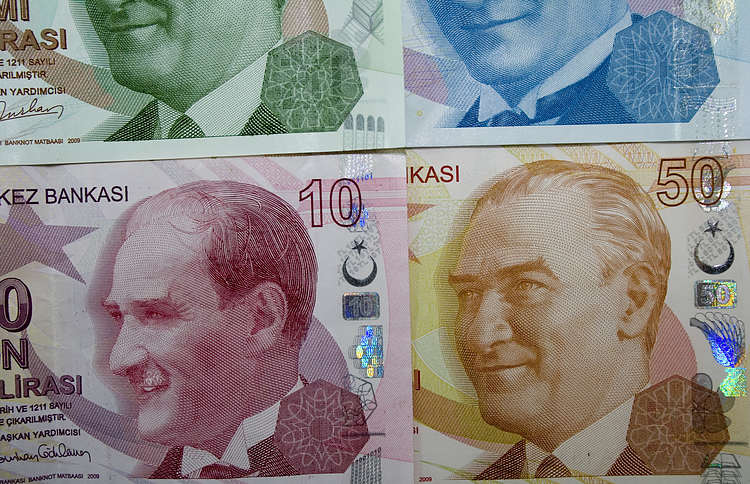The Turkish lira (TRY) exchange rate has shown stability in recent times, despite the challenges posed by the strong US Dollar (USD). However, there are signs that the lira may be starting to weaken, following a downgrade to the inflation outlook by the Central Bank of Turkey (CBT) and comments made by President Tayyip Erdogan during a trip abroad. Commerzbank’s FX analyst Tatha Ghose highlights the impact of Erdogan’s remarks, noting that they can be easily misinterpreted.
The CBT recently raised both the 2024 and 2025 inflation forecasts, signaling concerns about the ongoing high inflation rates in Turkey. Ghose points out that the recurring upward revisions to inflation forecasts do little to inspire confidence in the long-term outlook. He emphasizes the importance of addressing the current high inflation levels and the necessity for the month-on-month price increases to align with the target inflation rate. This lingering issue underscores the significance of Erdogan’s stance on interest rates and his willingness to tolerate high rates.
While Erdogan’s recent comments may not explicitly call for lower interest rates, they do hint at his preference for a more accommodating monetary policy. Ghose notes that Erdogan’s history of advocating for lower interest rates makes his remarks susceptible to misinterpretation by the media and the FX market. The lack of clarity in Erdogan’s statements, especially when discussing the relationship between inflation and interest rates, can create uncertainty and volatility in the currency market.
Despite the ambiguity surrounding Erdogan’s stance on interest rates, his support for former finance minister Mehmet Simsek as the right person to lead Turkey towards economic success is evident. However, Erdogan’s tendency to delve into complex economic concepts, such as the coexistence of low inflation and low interest rates in certain scenarios, can lead to confusion and skepticism among investors and analysts. The need for a clear and consistent monetary policy approach becomes increasingly apparent in light of these developments.
As Turkey grapples with the challenges of high inflation and the potential impact on its exchange rate, the role of the CBT in managing monetary policy gains significance. The central bank’s decision-making process, particularly in relation to interest rates, will play a crucial role in shaping the country’s economic trajectory. Erdogan’s position on interest rates, albeit nuanced, will continue to influence market sentiment and investor confidence in the Turkish lira. Clarity and transparency in communication from both the CBT and Erdogan will be key in navigating the current economic landscape and maintaining stability in the exchange rate.
















